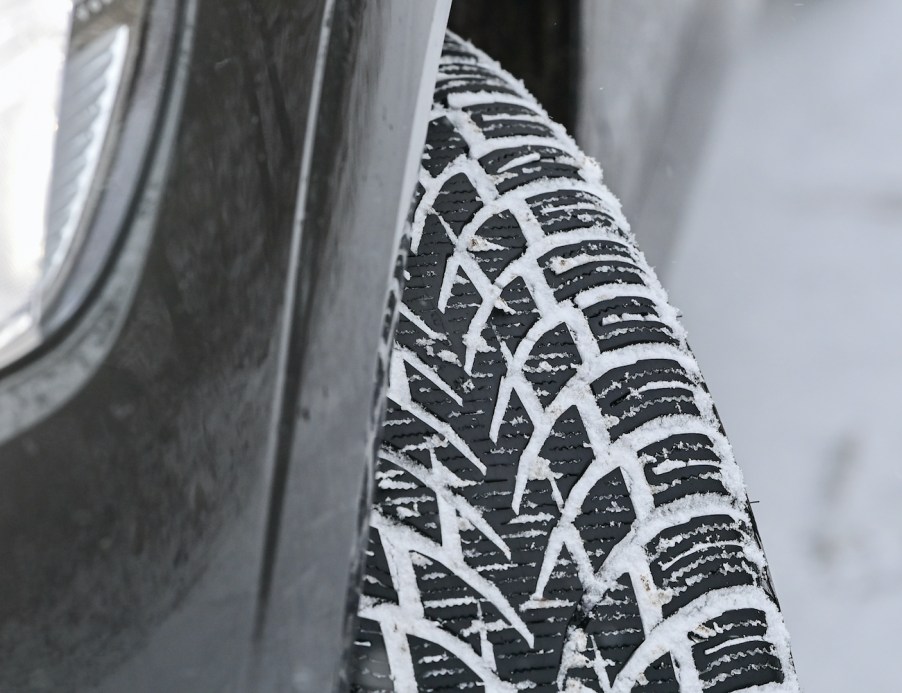
Can You Put Winter Tires on Sports Cars?
Winter driving typically necessitates the need to swap your car’s summer tires for winter rubber. As the mercury drops, so do sticky performance tires‘ traction levels. But what if you have a sports car? Can you put winter tires on it?
Can sports cars be fitted with winter tires?

The short answer is yes; nearly any sports car can be outfitted with winter tires. The only tricky part is finding the right tire size. Most rear-wheel-drive sports cars have what’s known as a “staggered wheel setup.” This is when the rear wheels are wider than the two front tires, which improves the traction and handling performance of the car. They also look great too.
However, it’s tough to source tires for cars with a staggered wheel setup, as many sports cars have non-common tire sizes. For example, the 2020 Chevrolet Corvette’s rear tires are 305/30-20, and the front tires are 245/35-19 size tires.
For the unaware, those are some funky sizes for 19 and 20-inch tires, making finding winter tires tough. Many winter tire brands will stock more common sizes to fit a greater variety of vehicles as opposed to stocking the non-common sizes to cater to the smaller sports car market.
Fitting winter tires on a sports car could mean going to a square setup

But what if your sports car is the only mode of transportation you have? In that case, you may need to go with a “square setup,” which is when the front tire size is the same as the rear. By using a square setup, you’ll be able to use a wider variety of more common winter tire sizes and fit them on your car.
However, remember that the size adjustment will affect the car’s handling performance. According to Driving Line, “Most cars are designed to have some understeer in stock trim, and fitting wider front tires to match the rear can help rid a car of understeer, making it more neutral on the track.”
Truthfully, you may not notice too much of a difference when driving the car at normal or slower speeds on snowy roads. So if you can’t find winter tires to fit your car’s staggered setup, the square route may be the better way to go.
Just note that if you go with a square setup, a set of new wheels could be in order so that they’ll fit. Many cars on the road use a set of steel wheels as they resist damage from potholes better.
Will all-season tires work in the winter?

Yes, all-season tires can still grip well in the snow as long as it’s not too deep. If you live in a state that only sees an inch of snow or so during the winter, then you should be able to get away with an all-season tire.
However, all-season tires are meant to work in temperatures around 40 degrees Fahrenheit or warmer. If the area you live in gets cold than that, then you may want to look for winter tires.
On that note, we tested the Michelin Pilot Sport All-Season tires in the dead of winter in Denver, Colo., and they performed well. But it’s worth it to note that we didn’t commute too far with them. If you have a long commute, then we suggest buying true winter or studded tire to get you through the winter weather.



